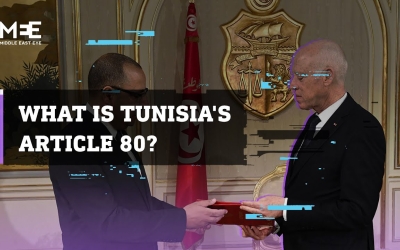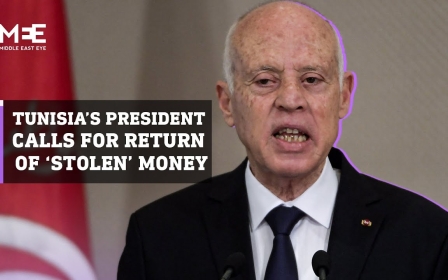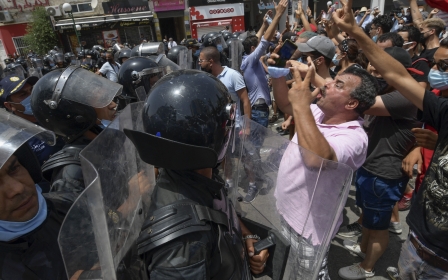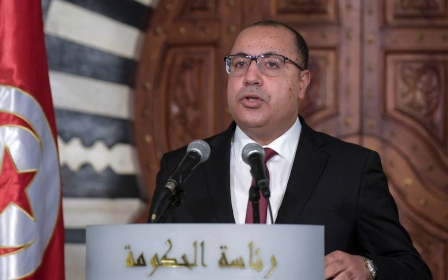Tunisia coup: Ghannouchi urges return to democracy
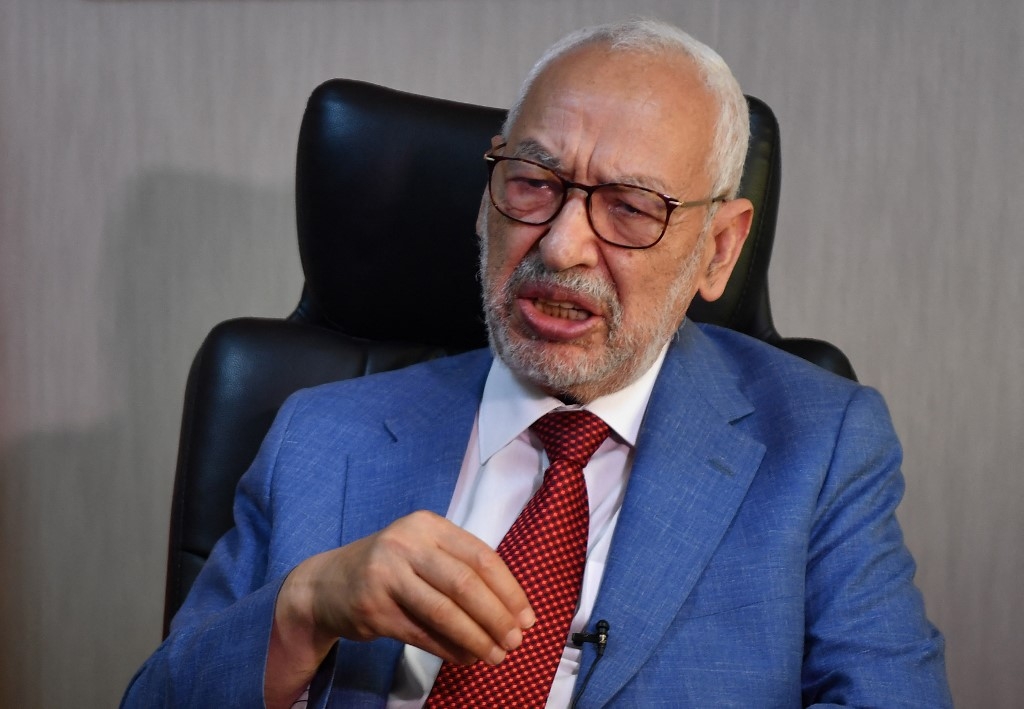
Tunisia's parliament speaker Rached Ghannouchi has called for a return to democracy following President Kais Saied's shock power grab at the weekend.
Ghannouchi, who is the leader of Ennahda, the largest party in Tunisia's parliament, said his party is “ready to make all concessions so that democracy can return to Tunisia.”
Saied has plunged the country into further political turmoil since his decision on Sunday to freeze parliament, oust the prime minister and assume executive and judicial powers in Tunisia for a period of 30 days. He has so far not presented a roadmap for his plan.
'Since the start, we have called on the people to fight the coup d'etat with all peaceful means, and this resistance will continue with peaceful means'
- Rached Ghannouchi, Tunisian parliament speaker
The president also lifted the parliamentary immunity of lawmakers, paving the way for their potential prosecution. Saied justified the move by citing article 80 of the constitution, which allows the head of state to take unspecified exceptional measures in the event of an "imminent threat".
The Tunisian constitution states that "measures necessitated by this exception situation" can be used, but that there must be a consultation with the speaker of parliament and that the constitutional court must be informed - an institution that has not yet been created in Tunisia, one of the main unfulfilled promises of the 2011 revolution.
The absence of the court means that there is now no mechanism to evaluate whether the circumstances were appropriate to invoke Article 80.
The purge of top officials has so far targeted at least 25 people.
While his supporters have seen the move as a decisive step to restoring stability in the crisis-ridden country, opposition politicians from across the political spectrum have denounced it, with Ennahda calling it a "constitutional coup".
On Thursday, Ghannouchi told AFP that political parties had made a mistake by failing to establish a constitutional court.
“President Saied has used the absence of a constitutional court to monopolise the interpretation of the constitution and to make himself the constitutional court, and that's an error in which we all bear a part of the responsibility," he said in an interview.
He added that the 30 days period of temporary suspension of parliament should be “the maximum limit to the suspension of the institutions and the constitution.”
'Resistance will continue with peaceful means'
Discussions between Saied and political parties must lead to agreement on a prime minister, government and a presentation of this government to parliament before the end of that period, Ghannouchi said.
He added that if such an agreement is not reached, “the Tunisian street will undoubtedly mobilise and we will invite the Tunisian people to defend their democracy.”
"Since the start, we have called on the people to fight the coup d'etat with all peaceful means, and this resistance will continue with peaceful means.”
On Wednesday, Tunisian judiciary announced a probe into Ennahda and two other political parties over allegations of foreign funding during the 2019 election campaign. It remains unclear whether the probe will mark the beginning of a crackdown on the parties.
A senior member of Ennahda told Middle East Eye on Wednesday that the probe "could be used as a pretext to set up an authoritarian regime" if the president continues to assume judicial powers.
Saied's power grab came two months after Middle East Eye revealed a letter written by Saied’s advisers urging him to seize control of the country using Article 80 of the constitution, which he now has.
MEE has also revealed this week that the deposed prime minister, Hichem Mechichi, was beaten up prior to agreeing to step down on Sunday. Mechichi has denied the report.
Middle East Eye propose une couverture et une analyse indépendantes et incomparables du Moyen-Orient, de l’Afrique du Nord et d’autres régions du monde. Pour en savoir plus sur la reprise de ce contenu et les frais qui s’appliquent, veuillez remplir ce formulaire [en anglais]. Pour en savoir plus sur MEE, cliquez ici [en anglais].


